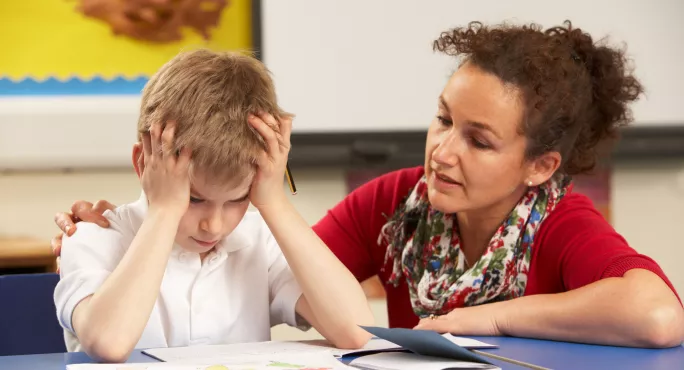Why pupil support assistants deserve more support

On my first day teaching in a school in Dundee, many years ago now, I was informed that the one rule to absolutely adhere to was enforcing the school’s strict dress code. But when I asked a pupil where his tie was, I was flummoxed by the rapidly spoken answer: “E’ve left meh teh a’ hame.”
Not yet being fully fluent in Dundonian, I asked again and got the same response. I tried a third time, politely requesting that he not rush the words. At this point, thankfully, the class pupil support assistant (PSA) took pity on me and intervened: “He’s saying he has left his tie at home.”
As a young teacher, I quickly realised that PSAs and additional support needs (ASN) teachers knew far more about the young people in front of me than I did and that I should listen to them - as they were the experts.
PSAs: ‘Have support staff numbers dropped? Who knows?’
Additional support for learning: Pupils who struggle to ‘fit in’ must not be forgotten
Inclusion: Has inclusion had its day as a concept in education?
Now, after 16 years of teaching and working alongside ASN staff, I believe that their role in class is an integral aspect of the learning and teaching that occurs: they work closely with pupils to translate my instructions, carry out on-the-hoof differentiation and provide emotional support during trying times.
Covid and schools: Pupil support assistants have been vital
And that is before I take into account the role they have played during the Covid pandemic.
As Tes reported in January 2021, many ASN staff were concerned about their conditions of work as they were recalled to work in the childcare hubs with primary teachers, while most secondary teachers continued to work from home. They requested reasonably to be prioritised for vaccinations, because how could staff be expected to work closely with pupils while keeping them safe in a socially distanced way? Many simply did not, putting their health at risk.
When secondary students returned en masse to school buildings in March, PSAs supported them face to face by using outdoor spaces, online chats and socially distanced conversations. Speaking with my colleagues, it was clear that the mechanics of trying to support pupils had meant a seismic shift in their practice. There was no specific Scotland-wide approach of how to do this in the guidance set out by the Scottish government, only that two-metre distancing had to happen. For some PSAs, this meant that they were also used as playground monitors to enforce social distancing. But with staggered lunchtimes in some schools, they could be standing outside for two hours - which is fine in summer, but certainly not during the Scottish winter.
On top of trying to carry out the same job in difficult circumstances, there was the ever-growing need to address the emotional support that pupils needed, post-lockdown. Through working one-to-one with pupils, PSAs develop robust working relationships; this emotional connection means that PSAs often bore the brunt of dealing with anxious and upset pupils, the stresses of lockdown and the return to school.
This pastoral role is one that took on even more prominence during the recent assessment and exam slog that students faced. Students were put under considerable pressure to achieve in a system that many saw as unfair and, unsurprisingly, were stressed as a result. For my own students, the PSAs became their invigilator, their reader, their scribe and their emotional support. When a student broke down in tears minutes before an assessment, I watched a PSA not bat an eyelid at the situation and comfort the student, before bringing them a cup of tea - not because that was their defined role, but because PSAs care deeply about their pupils.
Looking at online job ads as I write today, I see an hourly rate of pay that does not adequately reflect the job involved. We know how important PSAs are, and yet they are paid only marginally above Scotland’s Living Wage of £9.50.
Sure, PSAs do not need a degree - but they are, nevertheless, expected to be responsible for the quality of learning and teaching, and the needs of pupils. Teachers have seen a 1 per cent pay rise this year. Having helped to prop up Scottish education for the past year, surely PSAs’ invaluable contribution should be recognised in a more tangible way?
Marcus Patton is a secondary teacher in Scotland
You need a Tes subscription to read this article
Subscribe now to read this article and get other subscriber-only content:
- Unlimited access to all Tes magazine content
- Exclusive subscriber-only stories
- Award-winning email newsletters
Already a subscriber? Log in
You need a subscription to read this article
Subscribe now to read this article and get other subscriber-only content, including:
- Unlimited access to all Tes magazine content
- Exclusive subscriber-only stories
- Award-winning email newsletters
topics in this article



